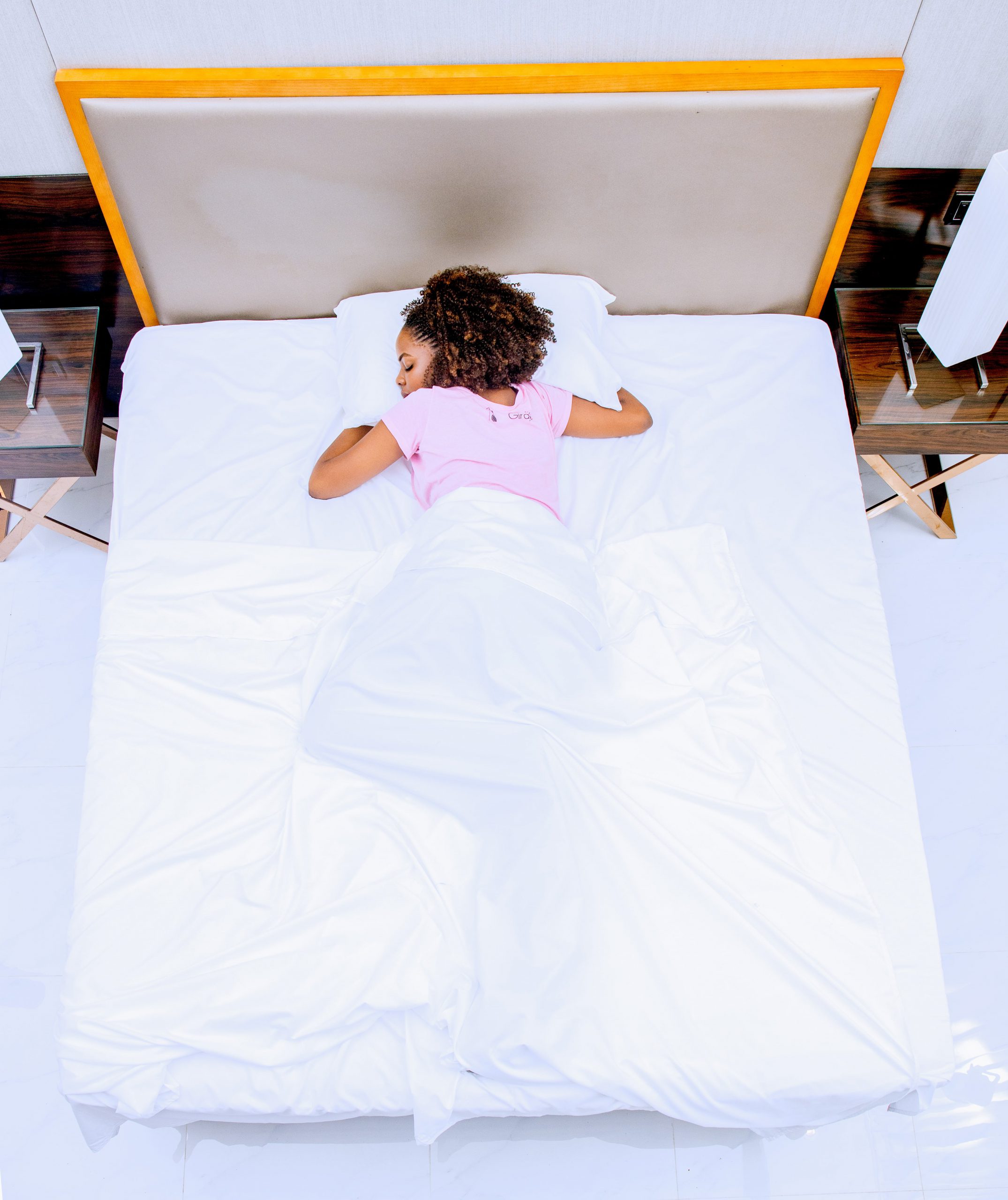How many hours of sleep should I get a night?
The number of hours you get per night depends on which category you fall under. Please see the listing below:

The number of hours you get per night depends on which category you fall under. Please see the listing below:

Not only has sleep deprivation been linked to high blood pressure, new studies have shown that those who do not get enough sleep are at a high risk of becoming obese.
Good sleep is restful and uninterrupted. Your body is completely relaxed, moving only once or twice each hour to allow for blood circulation. You enter in the five sleep stages several times. (See the following answer for more.) Two hours of this time is spent dreaming, where your brain tries to make sense of thoughts and brain signals. While you can’t feel it, your body’s cells produce and store proteins to renew and restore all of your systems.
Stage 1 – (10%) It’s easy to be awakened from stage 1 sleep. You may experience slight muscle contractions that give you the sensation of falling.
Stage 2 – (45-50%) Brain waves slow down, body temperature drops, breathing and heart rate remain constant.
Stage 3 and 4 – (20%) You enter deep sleep. Your brain waves change from the waking alpha and beta waves to slower theta and delta waves. It is hardest to wake you up. Your blood pressure drops and your breathing slows.
Stage 5 – REM (rapid eye movement) (20-25%) Your heart rate increases, your blood pressure rises, and you lose some ability to regulate your body temperature. Most dreams occur during this stage.
As the night goes on, periods of REM sleep increase in length while deep sleep time decreases. If you’re deprived of REM sleep one night, you may go into it earlier the following night to catch up.
Stick to a sleep schedule. Go to bed and get up at the same time every day, even on weekends, holidays and days off. If you don’t fall asleep within about 15 minutes, get up and do something relaxing. Go back to bed when you’re tired.
Pay attention to what you eat and drink. Don’t go to bed either hungry or too full. Your discomfort might keep you up. Also limit how much you drink before going bed, to prevent disruptive middle-of-the-night trips to the washroom.
Get comfortable. Create a room that’s ideal for sleeping. Often, this means cool, dark and quiet. Consider using room-darkening shades, earplugs, a fan or other devices to create an environment that suits your needs.
Create a bedtime ritual. Do the same things each night to tell your body it’s time to wind down. This might include taking a warm bath or shower, reading a book, or listening to soothing music – preferably with the lights dimmed.
Include physical activity in your daily routine: Regular physical activity can promote better sleep, helping you to fall asleep faster and to enjoy deeper sleep. Timing is important, though. If you exercise too close to bedtime, you might be too energized to fall asleep.
Limit daytime naps. Long daytime naps can interfere with nighttime sleep – especially if you’re struggling with insomnia or poor sleep quality at night. If you choose to nap during the day, limit yourself to about 10 to 30 minutes and make it during the midafternoon.
Problems can affect anyone. Most believe the problems are minimal and normal, with few people seeking the help they need.
If you experience any of the following, you may have a sleep problem and should consult your doctor:

Consult your doctor if your sleep problem is interfering with your work, school, relationships, or other important parts of your life. Or discuss sleep with your doctor when you go in for your yearly checkup.